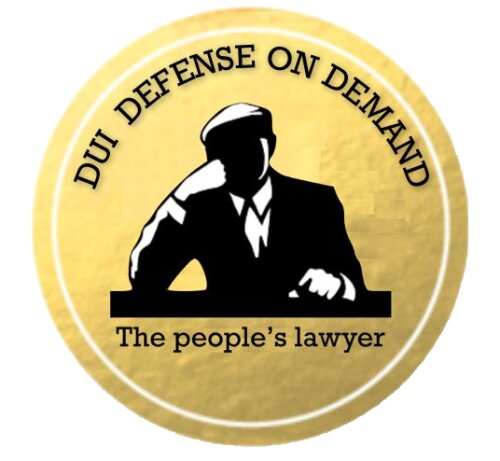Best Criminal Litigation Lawyers in San Jose
Share your needs with us, get contacted by law firms.
Free. Takes 2 min.
List of the best lawyers in San Jose, United States
1. About Criminal Litigation Law in San Jose, United States
Criminal litigation in San Jose operates under California state law, with cases heard in the Superior Court of California, County of Santa Clara. The process begins when a person is accused of a crime and ends with a verdict and possible appeal. Legal counsel in this area includes defense attorneys and prosecutors who navigate complex rules, evidence rules, and constitutional rights.
Key steps typically include arrest and booking, initial appearance, arraignment, possible preliminary hearing for felonies, plea negotiations, trial, and sentencing. Local procedures in Santa Clara County influence timelines and court management, but the framework largely follows California Code of Criminal Procedure and Penal Code provisions. A San Jose attorney will tailor strategy to local court practices, including Santa Clara County Local Rules of Court.
Understanding the roles helps residents know what to expect. An attorney can explain when to seek a speedy trial, how to request discovery, and how to pursue suppression of improperly obtained evidence. This guide uses San Jose and Santa Clara County as the practical frame for discussing criminal litigation in the United States.
“In California, the defense and prosecution must follow state statutes, local court rules, and constitutional protections at every stage.”
For reference, state and county authorities publish official guidance and procedural rules online. The Santa Clara County Superior Court site provides local rules and court procedures, while the California Legislature provides the statutory text that governs criminal procedure and evidence.
2. Why You May Need a Lawyer
In San Jose and Santa Clara County, certain cases necessitate immediate legal representation to protect rights and secure favorable outcomes. Below are concrete, real-world scenarios that commonly arise in this jurisdiction.
- You are stopped while driving in downtown San Jose and charged with a DUI, possibly with injuries or a high blood alcohol content. An attorney can challenge the stop, testing procedures, and potential penalties.
- You face domestic violence charges after a dispute at a Willow Glen residence. A defense counsel can manage restraining order issues, contact with alleged victims, and potential defenses based on self-defense or mistaken identity.
- You are accused of possession of drugs or drug trafficking in Santa Clara County. An attorney can assess search validity, chain of custody, and possible plea negotiations or diversion programs.
- Your business is accused of fraud or embezzlement affecting Santa Clara County clients. An attorney can review financial records, challenge evidence, and seek favorable dispositions or trial defenses.
- You are charged with a weapon offense or assault with a weapon. An attorney can evaluate sentencing enhancements, use of force defenses, and risk-reducing factors in negotiations or trial.
- You are facing shoplifting or theft in a San Jose area store. An attorney can examine surveillance, prior offenses, and potential diversion or restitution options depending on the case and value involved.
3. Local Laws Overview
San Jose residents and defendants in Santa Clara County operate under several key statutes and procedural rules. The following laws and rules are central to most criminal cases here.
- Penal Code Section 1538.5 - Motion to suppress evidence obtained in violation of the Fourth Amendment. This is a critical tool to challenge police searches and the admissibility of seized items. It is commonly invoked in San Jose cases involving stops, searches, or warrant issues. Penal Code 1538.5
- California Code of Criminal Procedure Section 1054.1 and following - Discovery in criminal actions, outlining the process for prosecutors to share evidence with the defense and for the defense to request materials. This framework governs how San Jose cases proceed toward trial with proper notice and exchange of information. Code of Civil Procedure - Discovery in Criminal Actions (Section 1054.1)
- Prop 47: The Safe Neighborhoods and Schools Act - Reclassifies certain non-violent offenses from felonies to misdemeanors, affecting charging decisions and sentencing in many Santa Clara County cases. It took effect on November 5, 2014, and has shaped numerous post-arrest outcomes and filings. Prop 47 text and summary
- Prop 57: The Realignment and Credits Provisions - Expanded opportunities for sentence credits and some discretion in parole decisions, influencing case strategy in Santa Clara County. It was approved by voters in 2016 and has continued to affect how cases are resolved or sentenced. Prop 57 text and summary
- Santa Clara County Local Rules of Court - Criminal - Local procedural rules that govern arraignments, filings, and court management in the county’s superior court. These rules complement state statutes and are published by the court. Superior Court of California, County of Santa Clara
Recent trends shape how these laws apply in San Jose. Prop 47 and Prop 57 have influenced charging options, plea negotiations, and sentencing decisions in Santa Clara County courts. Local rules also adapt to changes in management of criminal dockets and pretrial procedures.
4. Frequently Asked Questions
What happens at my first court appearance in San Jose?
The first appearance typically involves confirming your identity, charges, and attorney representation. The judge may set bail or release conditions and schedule future hearings. Your attorney explains potential plea options and next steps.
How do I hire a criminal defense attorney in Santa Clara County?
Start with referrals from trusted sources and verify license status with the California Bar. Schedule initial consultations to discuss case details, fees, and strategy. Bring all case documents, police reports, and any surveillance or discovery received.
What is a preliminary hearing and who attends in CA?
A preliminary hearing determines if there is enough evidence to require a trial for felonies. The defendant, defense counsel, the prosecutor, and a judge participate. A grand jury is not used for most California state cases.
How much does a San Jose criminal defense attorney cost on average?
Costs vary by case complexity, experience, and the case stage. Full representation through trial can range widely, while consult-only engagements are typically lower. Ask for a written fee agreement and estimate potential additional expenses.
Do I need a lawyer if I was just questioned by police?
Generally yes. You have the right to speak with an attorney before answering questions. A lawyer can advise on what information to share and help avoid self-incrimination or inadvertent admissions.
What is discovery and how do I get it in a Santa Clara case?
Discovery is the exchange of police reports, witness statements, and other evidence. Your attorney can file discovery requests under state rules to obtain documents necessary for defense planning.
What's the difference between a plea deal and going to trial in California?
A plea deal resolves the case without a trial, often with agreed charges and sentencing. A trial presents evidence to determine guilt or innocence, potentially leading to a verdict and sentence.
How long does a criminal case usually take in Santa Clara County?
Timeline depends on case type and court backlog. For misdemeanors, resolution may occur within a few months; felonies often take longer due to preliminary proceedings and trial scheduling. Delays can extend timelines significantly.
Do I qualify for a public defender in Santa Clara County?
Indigent defendants with limited resources may qualify for a public defender. The court determines eligibility, typically based on income and assets. Your attorney can help you apply if needed.
How can I get evidence suppressed in a San Jose case?
File a motion to suppress under Penal Code Section 1538.5, asserting that evidence was obtained unlawfully. A judge decides whether the evidence should be excluded from trial.
Is Prop 47 relief available for my case in Santa Clara County?
Prop 47 relief depends on the specific offense and timing. Some offenders may seek reclassification or resentencing, subject to court approval and statutory limits. An attorney can assess eligibility.
Can I represent myself in a California criminal case?
Representing yourself is generally possible but not advisable. Self-representation can lead to serious mistakes. An attorney helps ensure rights are protected and procedures are followed.
5. Additional Resources
Access official, government-supported sources to deepen your understanding and assist in decision making.
- Superior Court of California, County of Santa Clara - Official court information, local rules, and case management resources for Santa Clara County. https://www.scscourt.org/
- California Legislature - Penal Code and Code of Criminal Procedure - Text of statutes such as Section 1538.5 and discovery rules. https://leginfo.legislature.ca.gov/
- Santa Clara County District Attorney's Office - Prosecution policies and public information for criminal cases in Santa Clara County. https://da.sccgov.org/
6. Next Steps
- Identify your case type and note all charges, dates, and locations in San Jose or Santa Clara County. Gather police reports and any discovery you have received.
- Obtain a free or low-cost consultation with a qualified criminal defense attorney in Santa Clara County. Prepare a list of questions about strategy, fees, and timelines.
- Request initial discovery from the prosecution through your attorney and review police reports, witness statements, and surveillance evidence.
- Decide whether to negotiate a plea, seek suppression of evidence, or prepare for trial. Your attorney will outline the advantages and risks of each path.
- If bail or conditions of release apply, coordinate with your attorney to request favorable terms and ensure compliance with court orders.
- Monitor court dates and deadlines; respond promptly to motions and requests from the court or prosecutor.
- Keep copies of all communications and maintain ongoing contact with your attorney to adjust strategy as the case evolves.
Lawzana helps you find the best lawyers and law firms in San Jose through a curated and pre-screened list of qualified legal professionals. Our platform offers rankings and detailed profiles of attorneys and law firms, allowing you to compare based on practice areas, including Criminal Litigation, experience, and client feedback.
Each profile includes a description of the firm's areas of practice, client reviews, team members and partners, year of establishment, spoken languages, office locations, contact information, social media presence, and any published articles or resources. Most firms on our platform speak English and are experienced in both local and international legal matters.
Get a quote from top-rated law firms in San Jose, United States — quickly, securely, and without unnecessary hassle.
Disclaimer:
The information provided on this page is for general informational purposes only and does not constitute legal advice. While we strive to ensure the accuracy and relevance of the content, legal information may change over time, and interpretations of the law can vary. You should always consult with a qualified legal professional for advice specific to your situation.
We disclaim all liability for actions taken or not taken based on the content of this page. If you believe any information is incorrect or outdated, please contact us, and we will review and update it where appropriate.









